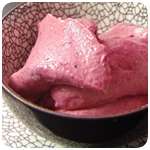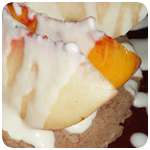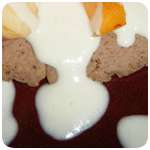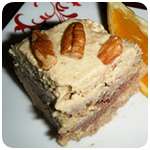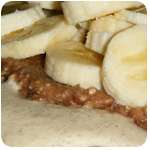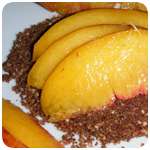

Visiting the doctor was never a matter of a "general checkup." I was always sick again before six months went by. I became contemptuous of doctors by the age of ten, which was the age where I got mono a second time.
I remember at least three different occasions (and there were likely many others I don't remember) where I was sitting in the car ready to go be driven to school and telling my mother that I wasn't sure I was up to going to school. These times were sometimes out of the blue, and sometimes after being out of school for a while and still recovering.
Sometimes my mother's response was to say, "No, you're going to school today," but most of the time she gave me this choice: "You're going to school or you're going to the doctor." Whenever she asked this I sighed and thought long and hard because I felt like going to the doctor was a waste of time and energy. Later I concluded that it was also a waste of money.
Often a trip to the doctor resulted in the doctor concluding that there was "nothing wrong" with me. Despite a 100 degree fever, excessive sweating, extreme fatigue, and a runny nose, the test results showed that I was perfectly normal. The swab in the back of the throat, the check of the ears, the check of my blood-pressure (which was usually just a little lower than it ought to be), the listening to my lungs, etc... always normal.
But did that mean I felt normal? Did I have the energy to run and play and learn?
Not in the least!
But somehow doctor after doctor did nothing but shrug his shoulders.
While I know today that some doctors take their profession seriously and very knowledgeable beyond and within their curriculum, as a child I lost all respect for the profession and despised them for not being able to help me. Today, of course, I simply don't judge a person by their degree or lack thereof.
Except for the mono, and repeated strep throat... The diagnosis: normal.
Because I was sick so often I became acquainted with many different cough medicines, antibiotics, decongestants, nasal sprays, vitamins, and so on. I discovered at the age of ten that benadryl made me sleepy.
After discovering this miraculous sleep serum I kept a bottle by my bed and took a sip each night to help me sleep. I discovered that instead of being awake until four in the morning, I was often asleep before midnight. I was overjoyed with having found a solution to at least one of my problems.
Looking back on it however, this is likely part of the reason why it started to get harder and harder to get out of bed.
Between the ages of nine and thirteen I had mono four times. Only three of those times were diagnosed, but the fourth time I didn't bother with a doctor. My glands were huge, my spleen ached, I was too tired to do anything: I knew what was wrong with me and didn't need to pay a doctor's copay to hear him tell me I should sleep and drink plenty of fluids.

At the age of eleven I was terribly depressed. I was tired of being sick, I was tired of not having friends, I was tired of spending so much time in bed, I was tired of being tired.
I enjoyed video games, typing up stories (as I was working on my first attempt at a novel then), playing with dolls, and solving mathematical equations.
I hated exercise, since it inevitably led to being sick which made me unable to do anything I wanted to do.
I knew I needed to get exercise, but was unsure as to how to go about it.
I tried a regime of doing crunches daily, but I lacked any motivation to keep it up.
Walking made my lungs burn and my sides ache after only a few blocks, and often resulted in me becoming sick.
Anything that required a high level of energy output was liable to make me sick.
My attempts to build some stamina were generally in the form of very short bursts of cardiovascular exercise (such as dancing), or in short bursts of crunches.
But whenever I fell sick again, I lost all the progress I had made.
In retrospect, I needed tiny steps. I needed some to push me very, very gently. My mother was so afraid for my health that she didn't push me. Everyone else was so disbelieving of my condition that they tried to push me too hard.
I was often accused of faking coughs, faking being sick, of staying out of school for illegitimate reasons, and for overall faking being frail when I couldn't be, since I was a child who was supposed to have tons of energy. I grew to really resent being called a faker or a liar.
After I had been drinking a little benadryl each night to help me sleep for eight months or so, I discovered that a little sip was no longer effective. I was often drinking huge gulps of the stuff each night. I'm sure that had a negative impact on my overall health, but since I was having so many issues overall it's impossible to say exactly what the impact of doing that was.

I had ravenous cravings as a pre-teen. I wanted milk and bacon all the time in particular. I had several bowls of cereal daily. Usually plain Cherrios (or the plain store-brand alternative), or plain shredded wheat. Although sometimes I mixed in frosted shredded wheat with plain shredded wheat, or in with my cherrios.
I had bacon once or twice a week. I had an egg (non-organic) on wheat toast (which I discovered years later contains high fructose corn syrup) three to six days out of the week. I also particularly enjoyed chicken-flavored ramon noodles, which I microwaved. I had those two to seven times a week.
My other favorites included french fries (of all kinds), lima beans cooked for about an hour and slathered in butter, baked potatoes (or any kind of potatoes), corn chips, cheese-puffs, potato chips, steak, breaded shrimp, sweet and sour chicken (from various "Chinese" places to eat), deviled eggs (which usually contained miracle whip which also contains high fructose corn syrup), and peanut butter sandwiches (consisting of toasted wheat bread and conventional Jiff peanut-butter which contains hydrogenated oils).
I didn't give in to my cravings for sugar very often because I knew the effects that sugar had upon me. It was evident since my response has always been so immediate. Often it came in the form of a headache. There was my first muscle cramp, which was undoubtedly a reaction to sugar; which I still remember vividly to this day. There were countless times where I had something sweetened and felt "blah" and tired within an hour of eating it.
I know sugar has a more profoundly negative effect on me than most people, but I also know that most people are unaware of how many of their problems are a result of sugar.
It's now recognized by informed doctors that sugar is incredibly detrimental to the body when had in large quantities, or when had in any refined form. Table sugar, high fructose corn syrup, and artificial sweeteners such as splenda and aspartame are now recognized as increasing the risks of every health issue on the face of the Earth.
Less recognized is that fact that any sort of sugar in high quantities is harmful. Even agave. I personally react to stevia, agave, molasses, maple syrup, xylitol, and maltodextrin virtually the same way.
However, if I had to list them from what I think is the best to use to the worst, I list them like this however;
Raw Honey (Best "refined" sweetener to use; all the refining is done by the bees.)
Raw Maple Syrup (If you can find it genuinely raw.)
Raw Organic Cane Sugar
Stevia
Agave / Yaccon
Most other sweeteners
Alcoholic alternative sweeteners, such as xylitol, sorbitol, glucitol etc.
Maltodextrin
Splenda
Aspartame / NutraSweet (Worst: disgusting toxic junk not even remotely suitable to consume.)

I once had a terrible first-hand experience with Splenda which put me against the stuff before I had done any research on it whatsoever. I was thirteen or fourteen at the time.
I was trying to find a yogurt with flavor, but without sugar. Six or seven years ago that was impossible. I discovered there was a new brand of yogurt that used splenda. My mother asked if I was willing to give it a shot, and I said I was. So we bought a six-pack of the little tiny yogurt cups. They were about half the size of standard yogurt cups.
My mother decreed that I couldn't have more than one cup in a day. I had the first cup as soon as I got home. I had another the next morning. That second day I did feel more tired than usual, but thought nothing of it since fatigue was such a regular part of my life.
The third day I also had a yogurt cup in the morning. I experienced minor muscle pains all day, but since that was also common for me, I didn't think anything of it.
The fourth and fifth day I also had a yogurt cup first thing in the morning, and experienced severe muscle pains in my legs unlike anything I had ever felt before.
The sixth day I still hadn't caught on, and I ate the last cup. My legs were in so much pain I was nearly paralyzed. I could barely walk, and the pain was so consuming that I could barely think. I don't recall if I tried taking anything for the pain, but I do remember that by the end of the night I was suspecting the yogurt.
It wasn't until three days after I had stopped eating the yogurt that the pain finally subsided entirely. I was then fully convinced that the yogurt was to blame, and because none of the other ingredients were anything unusual for my typical diet at that age, I knew splenda was the cause of the horrendous muscle cramps. Needless to say, I have not touched anything with splenda since.
By the time I was thirteen the Benadryl had lost all effect and I was back to being up hours into the night, long after I had gone to bed. I had discovered by then, however, that talking or writing right before bed seemed to help a lot.
Often I took the phone to bed and talked to whomever I could find to talk to until I was ready to sleep.
That one didn't fly so well with my parents, and I was frequently discovered, much to my ire.
Being discovered would backfire my entire purpose; I'd end up lying awake unable to sleep due to my flaming anger. I can just hear my thoughts screaming out in defiance: Why can't I talk on the phone whenever I want to?!
I suspect they believed that my late nights on the phone were exacerbating my sleeping problems, not helping.
At the age of thirteen it wasn't uncommon to find me awake past three in the morning in the least, and often I didn't sleep until being awake was a great physical pain.

Edited & Added Information
October 6th 2010
Edited Formatting & Added Information
January 28th 2011
Edited for flow and readability. Added the banners.











